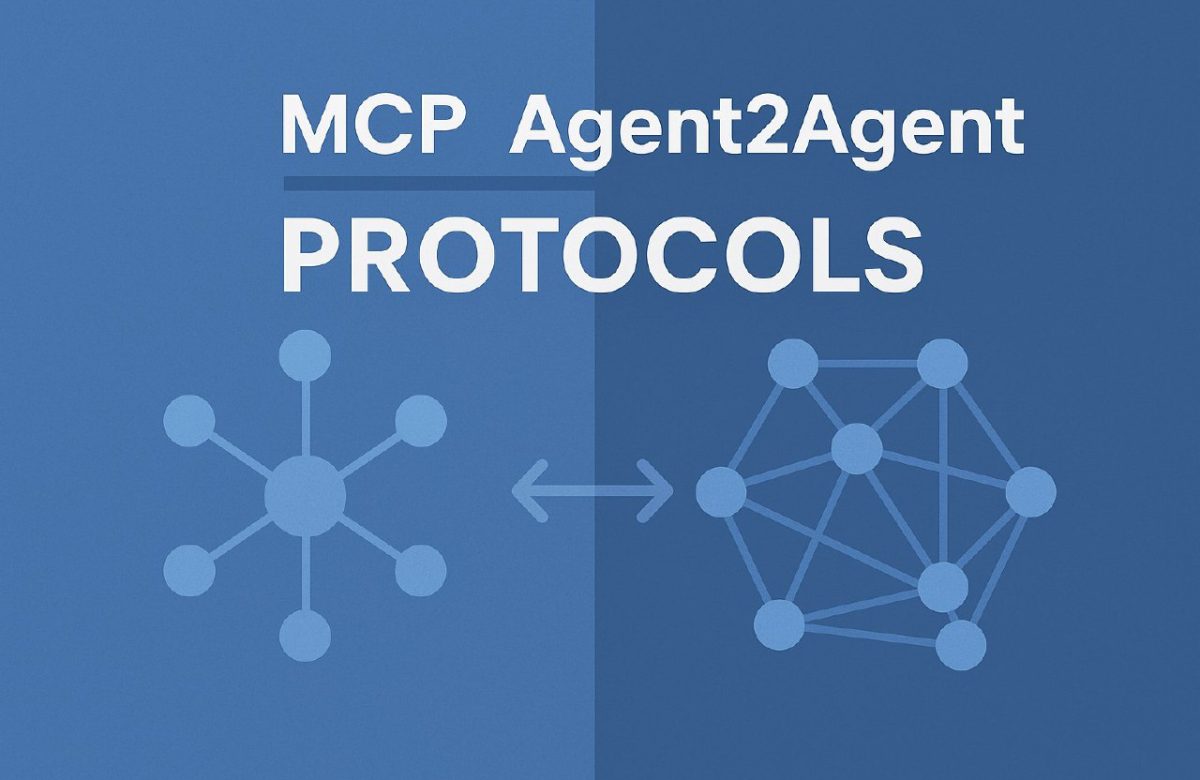The Future of AI Tooling: Unleashing Interoperability with MCP and Agent2Agent!
The future of AI tooling is undeniably illuminated by the rise of interoperable systems like Multi-Channel Platforms (MCP) and Agent2Agent frameworks. In a world increasingly driven by complex data, AI agents have the potential to redefine how businesses interact with technology and each other. This article explores future possibilities and hypothetical scenarios of an interconnected AI landscape.
The Rise of Interoperable AI
Imagine a future where AI systems seamlessly communicate and collaborate, drawing on shared knowledge to improve efficiency, decision-making, and user experience. In this world, MCP facilitates multiple channels of communication while Agent2Agent allows AI agents to interact autonomously across platforms. This compatibility not only maximizes productivity but also streamlines workflows.
Scenario: Enhanced Customer Service
Picture a retail company leveraging an MCP that integrates all customer touchpoints—website, social media, in-store kiosks, and chatbots. Each channel is powered by AI agents capable of real-time communication.
- The customer browses the website, and an AI agent recommends products based on their previous purchases.
- If they have questions, they can seamlessly transition to a chat window, where another AI agent continues the conversation without the customer needing to repeat information.
- This agent can further pull insights from sales data and other customer interactions to offer personalized deals.
This example highlights not only improved customer experience but also enhanced efficiency for the business, as AI agents handle routine inquiries, allowing human staff to focus on complex issues.
Scenario: Adaptive Marketing Strategies
In a changing market landscape, consider a marketing team that harnesses the power of MCP to manage campaigns across various platforms—email, social media, and web. AI agents analyze data from engagement metrics and campaign performance in real-time.
- One agent tracks social media performance, while another analyzes email open rates.
- When one campaign underperforms, the interconnected agents collaborate to adapt strategies on the fly, optimizing content and delivery based on customer engagement data.
The outcomes are remarkable: Marketing dollars are allocated dynamically, campaigns are more targetly tailored, and sales conversions increase significantly.
Scenario: Predictive Business Analytics
In the finance industry, the potential for AI interoperability could revolutionize risk assessment and investment strategies. Envision financial analysts relying on an MCP that incorporates various data sources—market trends, news articles, and client portfolios—each analyzed by specialized AI agents.
- One agent may focus on market trends, while another processes economic data.
- Together, they create predictive models that suggest optimal investment strategies based on real-time data analysis.
This predictive ability not only improves decision-making but diminishes risk by providing insight that was previously inaccessible or time-consuming to gather.
Benefits to Business
The shift towards interoperable AI can lead to profound benefits:
- Increased Efficiency: Automating routine tasks allows human resources to focus on higher-level decisions, driving overall productivity.
- Enhanced Customer Satisfaction: Personalized interactions foster a stronger connection between businesses and customers, boosting loyalty.
- Data-Driven Decision Making: Real-time analytics enable companies to pivot quickly in dynamic markets.
Examples of ROI
Consider the following examples of how average businesses can achieve ROI:
- Retail: Stores using AI-driven customer service reported a 30% decrease in response time, leading to a 15% increase in sales.
- Marketing: Businesses saw a 25% uplift in campaign performance through predictive analytics, translating to an average ROI of 300% on marketing investments.
- Finance: Companies utilizing AI for investment predictions experienced a reduction in risk exposure by 20%, resulting in substantial savings.
Actions for Implementation
To fully leverage these benefits, businesses should consider the following actions:
- Evaluate Existing Infrastructure: Assess current technologies to identify areas where interoperability can be introduced.
- Invest in AI Training: Equip teams with the skills necessary to manage and collaborate with AI systems effectively.
- Start Small: Launch pilot projects to validate the effectiveness of MCP and AI agents before scaling.
Conclusion
The future of business hinges on the ability to integrate and capitalize on innovative AI technologies like MCP and Agent2Agent frameworks. The opportunities for improved efficiency, enhanced customer satisfaction, and data-driven decision-making are immense. As we stand on the brink of this new technology revolution, it’s crucial to embrace the changes and implement strategies that drive success.
Ready to enhance your business with interoperable AI solutions? Schedule a consultation with our team today and discover how we can help you harness the power of AI for your business success.


